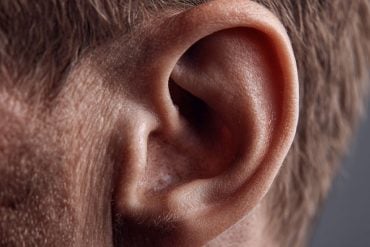Summary: Podcasts are increasingly popular, with people spending over five hours weekly listening to them. A new study reveals health-related podcasts can significantly improve health knowledge, boost physical activity, and encourage healthier eating habits. Researchers reviewed 38 studies and found that podcasts’ conversational tone and accessibility drive high engagement.
Listeners appreciate their authenticity and adaptability, making podcasts an effective tool for public health messaging. While more research is needed, the findings highlight podcasts’ potential to inspire positive health changes.
Key Facts:
- Health podcasts improve knowledge, exercise levels, and eating habits.
- Listeners value podcasts for their authenticity, reliability, and convenience.
- Study highlights podcasts as effective tools for delivering public health messages.
Source: University of South Australia
Whether it’s ABC Listen’s Health Report or Mamamia’s But Are You Happy, podcasts have fast become a part of our everyday media consumption. In fact, the average person spends more than five hours a week listening to them. But could listening to podcasts lead to healthier habits?
In the first study of its kind, University of South Australia researchers have explored just this, finding that podcasts can significantly improve health knowledge, increase exercise levels, and boost healthy eating.
Reviewing results from 38 studies, researchers found that people’s engagement with health-related podcasts was generally high, suggesting that podcasts could be an effective medium for health information and behaviour change interventions.
Nielsen data shows that podcast popularity has increased by 16% since last year, cementing this on-demand media in the everyday lives of 9.6 million Australians.
UniSA researcher Beth Robins says the findings highlight the potential of podcasts promoting positive health behaviours.
“Health and wellbeing podcasts have the unique ability to convey a wide range of health topics to a variety of listeners, but in a very accessible way,” Robins says.
“Not only are podcasts typically chatty and conversational – which makes them easy to listen to and understand – but they’re also available at the touch of a button, so they’re extremely convenient, portable, and can be listened to at any time of the day.”
The study found that the most common motivations for listening to a health podcast was to gain information, better understand mental health issues, and to seek entertainment.
UniSA researcher Dr Ben Singh says the high engagement with health podcasts presents an advantage over other health interventions for sharing important public health messages.
“Our study is the first to review the evidence about health podcasts for the general population,” Dr Singh says.
“From this study, we know that podcasts are highly valued for their authenticity and reliability, as well as their impactful, experience-focussed, and narrative-driven content.
“They’re also valued for their ability to be consumed at the user’s pace and in a setting that suits them – whether that’s while relaxing at home or walking the dog – and this aligns with increasing consumer demand for health resources that are both informative and adaptable to individual lifestyles.
“While more research is warranted, podcasts are clearly a highly engaging, well-received resource that can positively impact health behaviours and outcomes. It’s certainly a watch this space.”
About this health and psychology research news
Author: Annabel Mansfield
Source: University of South Australia
Contact: Annabel Mansfield – University of South Australia
Image: The image is credited to Neuroscience News
Original Research: Open access.
“Podcasts as a tool for promoting health-related behaviours: A scoping review” by Beth Robins et al. Digital Health
Abstract
Podcasts as a tool for promoting health-related behaviours: A scoping review
Background
Podcasts are a popular medium for delivering health-related content, potentially influencing physical and mental health behaviours and outcomes. This scoping review evaluates the impact of health podcasts on such outcomes, engagement levels, and public perceptions.
Methods
This scoping review followed the Arksey and O’Malley framework and PRISMA-ScR guidelines. Qualitative or quantitative articles published from 2004 onward were included. Eligibility criteria were developed using the Population, Exposure and Outcome framework. Included articles examined the use, engagement with, or perspectives towards health-related podcasts. Data were synthesised narratively.
Results
Fifty articles encompassing 38 studies were analysed. Significant improvements (p < 0.05) were observed in health monitoring, knowledge, behaviours, attitudes, chronic disease management, maternal health and behavioural improvements.
Results were mixed for physical activity (n = 2 significantly improved, n = 2 no change), fruit and vegetable consumption (n = 1 significantly improved, n = 1 no change), and weight outcomes (n = 2 significantly improved, n = 2 no change).
No significant changes were observed in depression and anxiety. Podcast engagement studies (n = 7) reported participation rates between 62% and 83% and an average weekly listening duration of 103–124 minutes.
There was high satisfaction, trust and appreciation for podcasts that effectively blended personal anecdotes with reliable medical information. Sample sizes ranged from 7 to 722, with sample age ranging from under 18 to 73.2 ± 6.2 years. Studies included both male (n = 1), female (n = 6) and mixed samples (n = 24).
Podcasts were used individually (n = 19), alongside other supportive technology such as apps and online material (n = 11) and retrospective podcast use was analysed in cross-sectional (n = 3) and a single (n = 1) audit. Duration of podcasts ranged from 30 seconds to 24 minutes.
Conclusion
Podcasts show promise as effective tools for health promotion, achieving strong engagement and effects on knowledge and behaviours. Future research should explore content innovation and integration into health interventions, and long-term effectiveness.







